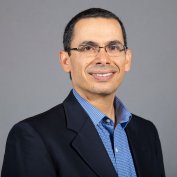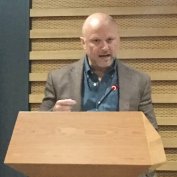What is an ombudsperson?
An ombudsperson provides independent, informal and non-partisan counsel to graduate students.
Graduate students can ask for an ombudsperson’s advice on their University experience or for help resolving a dispute or misunderstanding — particularly if the issue involves the student’s academic program or progress.
As a listener, counselor, mediator and factfinder, an ombudsperson answers graduate students’ questions and provides feedback on their concerns or complaints.
An ombudsperson may also refer students to other University resources; however, students do not need to consult an ombudsperson to access those resources.
When appropriate, an ombudsperson can also speak generally with campus offices about graduate students’ concerns or suggest policy changes to create a more supportive environment for graduate students.
Who can be an ombudsperson?
Ombudspersons at the University at Albany hold the rank of full professor or professor emeritus and have agreed to be available to students, both in person and by phone and email.
Their appointment reflects their peers’ trust in their fairness, their understanding of graduate students and their knowledge of the University’s academic organization.
What can an ombudsperson help with?
Students typically seek out an ombudsperson when they:
-
believe they are being treated unfairly in their department or by a professor
-
need help resolving a misunderstanding or dispute with a faculty member, advisor or fellow student
-
feel a policy is being applied unfairly or in error
-
are unsure where to access other resources
In turn, ombudspersons can offer:
-
insight, perspective and a sense of community
-
help with identifying the options for moving forward
-
opportunities to practice with effective communication skills
-
someone outside students’ department who shares an interest in their success
These meetings typically take place inside the ombudsperson’s faculty office or another University space agreed upon by the student and ombudsperson.
What can’t an ombudsperson help with?
Ombudspersons’ are not trained or credentialed to serve as psychological counselors. The University has a variety of health and well-being resources for students, including Student Health Services, Counseling and Psychological Services and the Office of Health Promotion. An ombudsperson may help students access those resources.
An ombudsperson also cannot offer legal advice and does not deal with employment or personnel matters. Students should consult the Office of International Student Services for visa issues, the Bias Incident Response Team for issues involving bias, Human Resources and the Graduate Student Employees' Union for employment issues and the Disability Access & Inclusion Student Services for assistance with academic accommodations.
Lastly, an ombudsperson does not constitute part of the University’s grievance procedure or judicial system, nor does an ombudsperson have any formal decision-making authority over the students who seek out consultation. However, students may decide to file a grievance after consulting an ombudsperson or discuss their decision to do so with an ombudsperson.
Ombudspersons do not address disputes that involve private individuals, organizations or companies that are not affiliated with UAlbany. If an issue arises during a student’s internship, field placement or similar circumstance, though, it may be appropriate to consult an ombudsperson.
Are consultations with an ombudsperson confidential?
Ombudspersons provide students with confidentiality and will not violate their privacy. They do not disclose who does or does not seek their consultation.
An ombudsperson will only investigate a problem, open a channel of communication or mediate a conflict as a neutral third party at the express request of the student.
Ombudspersons do not become involved in formal grievances or judicial proceedings because they operate outside the ordinary administrative structure of the University and have no formal decision-making authority over students whom they consult.
Ombudspersons don’t keep official records of their meetings with students and don’t share identifying information about students with any University entity without the student's express permission.
However, as faculty members, ombudspersons remain officers of a public agency. They maintain confidentiality and privacy within the limits of the law. They are required to act if they find reasonable evidence that a student may be a danger to themselves or others.
Meet our Ombuds




